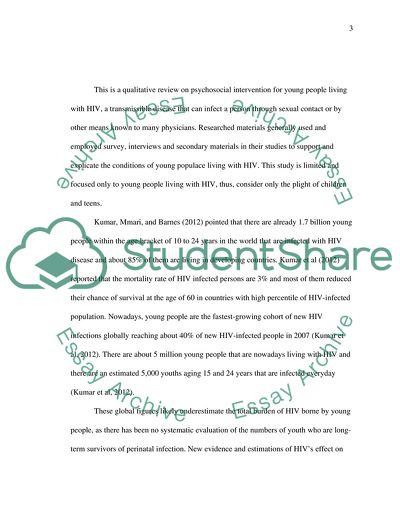Cite this document
(Review of a Qualitive Research Study Paper Example | Topics and Well Written Essays - 1000 words, n.d.)
Review of a Qualitive Research Study Paper Example | Topics and Well Written Essays - 1000 words. https://studentshare.org/medical-science/1781823-psychological-intervention-for-young-people-living-with-hiv
Review of a Qualitive Research Study Paper Example | Topics and Well Written Essays - 1000 words. https://studentshare.org/medical-science/1781823-psychological-intervention-for-young-people-living-with-hiv
(Review of a Qualitive Research Study Paper Example | Topics and Well Written Essays - 1000 Words)
Review of a Qualitive Research Study Paper Example | Topics and Well Written Essays - 1000 Words. https://studentshare.org/medical-science/1781823-psychological-intervention-for-young-people-living-with-hiv.
Review of a Qualitive Research Study Paper Example | Topics and Well Written Essays - 1000 Words. https://studentshare.org/medical-science/1781823-psychological-intervention-for-young-people-living-with-hiv.
“Review of a Qualitive Research Study Paper Example | Topics and Well Written Essays - 1000 Words”. https://studentshare.org/medical-science/1781823-psychological-intervention-for-young-people-living-with-hiv.


